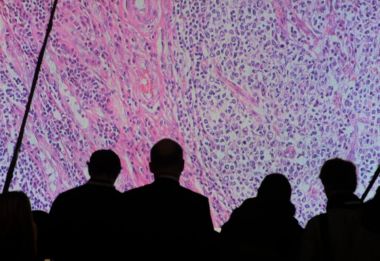Hope for cancer sufferers: Brazilian wasp's venom can kill cancer cells, says new study

Most people tend to stay away from wasps because these insects can sting, causing a painful, burning and itchy sensation on the skin.
Scientists, however, recently found out that the venom of a certain kind of wasp found in Brazil can be used to target and kill cancer cells.
A research published on Sept. 1 in the peer-reviewed scientific journal Biophysical Journal showed that toxins in the venom of the wasp Polybia paulista can attack cancer cells without harming normal cells.
The toxin, called MP1, was found to be able to interact with fat molecules on the surface of cancer cells, boring holes that allow molecules crucial for cell function to leak out. Wasps normally use the MP1 toxin to attack prey or defend itself against predators.
"Formed in only seconds, these large pores are big enough to allow critical molecules such as RNA [ribonucleic] acid and proteins to easily escape cells," explained Joao Ruggiero Neto of Sao Paulo State University in Brazil, a co-author of the study.
The toxins were also found to be most effective in slowing the growth of prostate and bladder cancer cells, as well as leukaemia cells.
Paul Beales, of the University of Leeds in the United Kingdom, said this new discovery essentially introduces a "new class" of drugs against cancer.
"Cancer therapies that attack the lipid composition of the cell membrane would be an entirely new class of anti-cancer drugs," Beales said.
"This could be useful in developing new combination therapies, where multiple drugs are used simultaneously to treat a cancer by attacking different parts of the cancer cells at the same time," he added.
The researchers plan to conduct further studies on the MP1 toxin, particularly to try to alter its amino acid sequence.
"Understanding the mechanism of action of this peptide will help in translational studies to further assess the potential for this peptide to be used in medicine," Beales said.
"As it has been shown to be selective to cancer cells and non-toxic to normal cells in the lab, this peptide has the potential to be safe, but further work would be required to prove that," he added.











